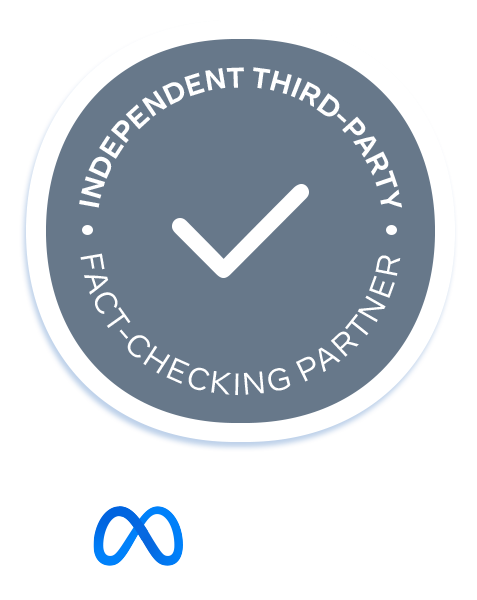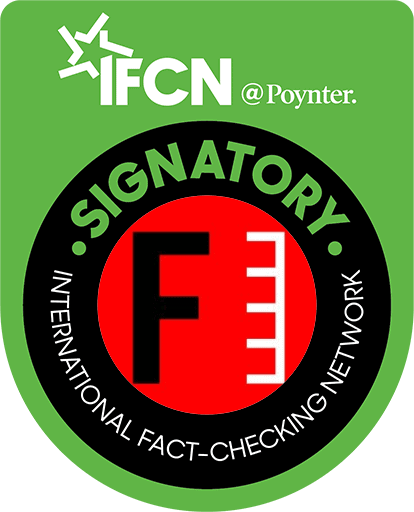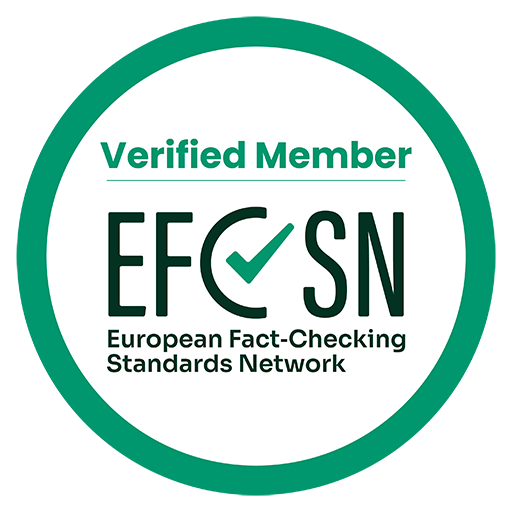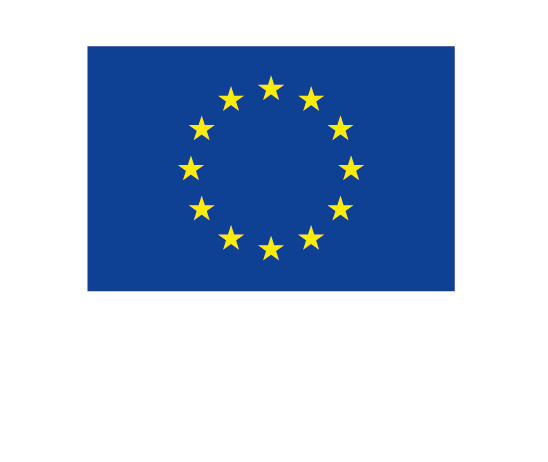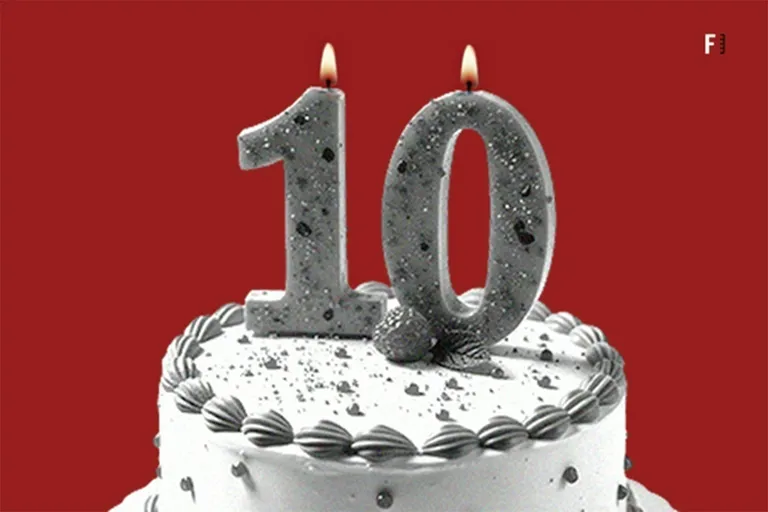
Prvih deset godina portala Faktograf
U povodu desetog rođendana portala Faktograf, izvršna direktorica udruge Faktograf Ana Brakus piše o počecima rada, ali i razvoju portala i udruge/On the occasion of the tenth anniversary of the Faktograf portal, the executive director of the Faktograf association Ana Brakus writes about the beginnings of its work, as well as the development of the portal and the association.
Bez pretjerivanja, u listopadu 2015. godine svijet je bio dramatično drugačije mjesto nego danas.
Kolinda Grabar Kitarović te je godine postala prva hrvatska predsjednica, a aktualni predsjednik Zoran Milanović bio je predsjednik SDP-a i hrvatski premijer. Ivica Relković maštao je reforme koje će provesti Most, a Božo Petrov još nije ovjerio izjavu kod javnog bilježnika. Zlatko Hasanbegović bio je tek nekoliko mjeseci udaljen od ministarske fotelje i blitzkriega protiv neprofitnih medija, a Tihomir Orešković nije mogao ni sanjati da će postati premijer.
HDZ-ov šef Tomislav Karamarko nije imao pojma da će u 2016. godini biti primoran dati ostavku, a ni aktualni premijer Andrej Plenković još uvijek nije poslao pismo iz Europskog parlamenta kojim je jasno dao naslutiti da mu ambicije daleko nadilaze poziciju koju je tada zauzimao unutar HDZ-a.
Donald Trump tek se koji mjesec ranije spustio pokretnim stepenicama u Trump Toweru, javno obznanivši da želi postati predsjednik Sjedinjenih Američkih Država. Isti establišment koji Trump danas, u svojem drugom mandatu, s osmijehom uništava, njegovu je kandidaturu tada dočekao podsmijehom. Kampanja za Brexit se zahuktavala, a svijet još nije otkrio skandal Cambridge Analytice. Pariški klimatski sporazum bit će usvojen dva mjeseca kasnije, a ratificiran tek u 2016. godini.
Facebook i Twitter bili su vladari društvenih mreža, TikTok u tom trenutku nije bio lansiran ni u Kini. Uber se tek pojavio u Zagrebu, a Bolt i Wolt bili su godinama udaljeni od ulaska na hrvatsko tržište. Generativna umjetna inteligencija, poput danas sveprisutnog Chat GPT-ija, tek se razvijala.
U mjesecima koji su prethodili listopadu 2015. godine i dalje se češće mogao čuti termin “izbjeglički val”, nego “migrantska kriza”. Povijest je bilježila nekoliko genocida manje.
Bili smo više od četiri godine udaljeni od trenutka kada je Svjetska zdravstvena organizacija, u ožujku 2020,. proglasila pandemiju Covida. Zasigurno najdisruptivnijeg događaja posljednje dekade, čije posljedice živimo i danas.
Prvi hrvatski medij specijaliziran za fact-checking
Portal Faktograf objavio je u listopadu 2015. godine svoje prve tekstove. U hrvatski medijski prostor unio je nešto sasvim novo – fokus na provjeru činjenične točnosti tvrdnji koje u javni prostor iznose političari i političarke. Faktograf.hr postao je prvi medij u Hrvatskoj specijaliziran za fact-checking. Osnovan je pri neprofitnoj organizaciji Gong, poznatoj po praćenju i analizi izbornih procesa.
Portal je osnovan po uzoru na tada tek rijetke primjere iz svijeta, uz pomoć i savjete pionirskih organizacija u regiji od kojih su brojne danas članice regionalne SEE Check mreže. Danas smo u članstvu i europske i međunarodne mreže fact-checkera.
Od samih početaka, Faktograf.hr je čitateljima i čitateljicama pružao dubinske analize, pratio obećanja političara, nudio istražene tekstove na ključne, ali zanemarene teme u medijskom mainstreamu.
Od listopada 2015. do danas, kroz deset izbornih ciklusa (četiri parlamentarna, dva predsjednička, dva lokalna i dva europarlamentarna) sustavno smo analizirali kampanje, provjeravali tvrdnje i bilježili ključne trenutke. Sve ih je pratio i opisivao Petar Vidov, prvi glavni urednik Faktografa, baš kao i Sanja Despot, aktualna glavna urednica.
Nakon godina isključivo projektnog financiranja, u 2019. godini Faktograf.hr postao je dio Metinog (tada Facebookovog) programa. Upravo je taj aspekt Faktografovog rada postao najprepoznatljiviji, ali i najteži.
Iako se u početku činilo da je riječ o nevinom nerazumijevanju uloge fact-checkera u radu platforme koja je pokretanjem programa za provjeru točnosti činjenica pokušala mitigirati tisuću i jedan problem u kojem se našla, ubrzo je postalo jasno da je riječ o nečem sasvim drugom.
Koordinirane kampanje napada na fact-checkere aktivirane su diljem svijeta, a Hrvatska ni po čemu nije bila drugačija. Osim možda po učestalosti i okrutnosti napada na novinare i novinarke portala. Potezi kompanije za vrijeme pandemije, posebno su se prelamali preko naših leđa. Kako točno izgleda suradnja Faktografa i Mete, možete vidjeti ovdje. Ponovimo još jednom, ukratko: Faktograf nikada nije imao ovlasti uklanjanja sadržaja s Metinih platformi.
Početkom 2020. godine prvi puta smo radili live fact-checking, odnosno uživo provjeravali točnost tvrdnji iznesenih na debati Zorana Milanovića i Kolinde Grabar Kitarović.
Nakon prvog vala korone, potresom razrušenog ureda, rada od doma i svijeta koji se mijenjao pred našim očima, i mi smo se odlučili na velike promjene. U lipnju 2021. osamostaljujemo se i osnivamo neprofitnu organizaciju Faktograf – udrugu za informiranu javnost.
Pokrenut Klimatski portal
Udruga Faktograf se s godinama razvijala i širila pa je, uz portal Faktograf, pokrenula i prvi portal u Hrvatskoj posvećen klimi i klimatskim promjenama.
I na Klimatskom portalu trudimo se raditi novinarstvo drugačije: ne izvještavamo senzacionalistički o klimatskoj krizi, fokusiramo se na rješenja, dok istovremeno razotkrivamo poricatelje stvarnog stanja stvari.
U radu Klimatskog, baš kao i Faktografa, značajno se oslanjamo na svoje publike – na čitatelje i čitateljice koje pozivamo da s nama budu u stalnoj interakciji, da nam postavljaju pitanja, dijele s nama svoje dojmove, daju nam do znanja kada nešto napravimo kako spada, kako im je i zašto to bilo korisno, ali i da nas isprave, nadopune.
Izdali smo niz publikacija, proveli brojna istraživanja, surađivali s organizacijama diljem Europe, ali i s drugih kontinenata, posebno blisku suradnju razvili smo s organizacijama u regiji.
Faktografova arhiva broji tisuće tekstova i predstavlja presjek ključnih tema u proteklih deset godina – ključnih dezinformacijskih narativa, sitnih laži i onih većih – ona je skup našeg istraživačkog i analitičkog rada. Ne sramimo se priznati da smo i mi ponekad pogriješili, štoviše, od 2022. godine sve svoje ispravke objavljujemo na jednom mjestu, na uvid svima.
Faktograf.hr je neprofitni medij koji je u Republici Hrvatskoj preživio punih deset godina. Svi dobro znamo da to nije ni mala niti laka stvar. Portal Faktograf rastao je i razvijao se, širio publiku, otkrivao nove načine rada, nekad za taj rad bio nagrađivan, nekad ponižavan i napadan.
Faktograf će nastaviti utvrđivati činjenice, nastaviti istraživati, nastaviti pisati.
Dozvolite mi monopolizaciju ovog prostora, samo na sekundu. Počela sam na ovom portalu kao novinarka, zatim urednica, a zadnjih godina radim kao izvršna direktorica udruge. I mogu vam reći: protekla je godina bila teška, možda najizazovnija u povijesti Faktografa. Prema svemu sudeći, godine koje su pred nama bit će i teže. Svijet je naprosto, i bez pretjerivanja, dramatično drugačije mjesto nego što je to bio 2015. godine.
Hvala vam što ste s nama prvih deset godina.
Faktograf: Our First Ten Years
Without exaggeration, in October 2015, the world was a dramatically different place than it is today.
That year, Kolinda Grabar Kitarović became the first Croatian female president, and the current president, Zoran Milanović, was the president of SDP and the Croatian prime minister. Ivica Relković dreamed of reforms to be implemented by Most, and Božo Petrov had not yet certified his statement with a notary public. Zlatko Hasanbegović was only a few months away from the ministerial chair and the Blitzkrieg against the non-profit media, and Tihomir Orešković could not have dreamed of becoming prime minister.
HDZ head Tomislav Karamarko had no idea that he would be forced to resign in 2016, and the current Prime Minister Andrej Plenković had not yet sent a letter from the European Parliament, which clearly indicated that his ambitions far exceed the position he occupied within the HDZ at the time.
Only a few months earlier, Donald Trump had descended the escalator in the Trump Tower, publicly announcing that he wanted to become the president of the United States. The same establishment that Trump is smilingly destroying today, in his second term, then met his candidacy with ridicule. The Brexit campaign was heating up, and the world had not yet learned of the Cambridge Analytica scandal. The Paris Climate Agreement would be adopted two months later, and ratified only in 2016.
Facebook and Twitter were the rulers of social networks, TikTok had not yet been launched even in China. Uber had just appeared in Zagreb, and Bolt and Wolt were years away from entering the Croatian market. Generative artificial intelligence, like the ubiquitous ChatGPT today, was only developing.
In the months preceding October 2015, the term “refugee wave” could still be heard more often than “migrant crisis”. History was several genocides poorer.
We were more than four years away from the moment the World Health Organization, in March 2020, declared the Covid pandemic. Certainly, the most destructive event of the last decade, the consequences of which we live to this day.
In October 2015, the Faktograf portal published its first texts. It introduced something completely new into the Croatian media space – a focus on verifying the factual accuracy of claims made in the public space by politicians. Faktograf.hr became the first medium in Croatia specializing in fact-checking. It was founded by Gong, a nonprofit organization known for monitoring and analysing electoral processes.
The portal was founded on the model of the then rare examples from the world, with the help and advice of pioneering organizations in the region, many of which are now members of the regional SEE Check Network. Today, we are a member of both the European and international fact-checker networks.
From the very beginning, Faktograf.hr provided readers with in-depth analyses, monitored the promises of politicians, offered research texts on crucial but neglected topics in the media mainstream.
Since October 2015, through ten election cycles (four parliamentary, two presidential, two local and two European parliamentary), we have systematically analysed political campaigns, verified claims and recorded key moments. They were all monitored and described by Petar Vidov, the first editor of Faktograf, as well as Sanja Despot, the current editor-in-chief.
After years of purely project-based financing, Faktograf.hr became part of Meta’s (then Facebook’s) programme in 2019. It was this aspect of the Faktograf’s work that became the most recognizable, but also the most difficult.
Although it initially seemed that it was an innocent misunderstanding of the role that fact-checkers have in the work of the platform, which tried to mitigate a thousand and one problem it found itself in by running a fact-checking program, it soon became clear that something completely different was at hand.
Coordinated campaigns of on fact-checkers were activated around the world, and Croatia was no different. Except perhaps for the frequency and cruelty of attacks on journalists. The company’s moves during the pandemic especially took a tool on us. Here you can see precisely how the cooperation between Faktograf and Meta looks like. Let’s go over it again, briefly: Faktograf has never had the authority to remove content from Meta’s platforms.
At the beginning of 2020, we performed live fact-checking for the first time, that is, we checked the accuracy of the claims made at the debate between Zoran Milanović and Kolinda Grabar Kitarović.
After the first wave of the coronavirus, the earthquake that destroyed our office, working from home and the world that was changing before our eyes, we too decided to make big changes. In June 2021, we became independent and established the non-profit organization Faktograf – Association for the Informed Public.
Over the years, the Faktograf Association has developed and expanded: in addition to the Faktograf portal, it launched the first portal in Croatia dedicated to climate and climate change.
At the Klimatski portal (Climate Portal), too, we try to do journalism differently: we do not provide sensationalist reports about the climate crisis; we focus on solutions, while at the same time exposing those who are denying the real state of affairs.
In the work of the Klimatski portal, as well as Faktograf, we rely significantly on our audiences – on readers who we invite to be in constant interaction with us, to ask us questions, share their impressions, let us know when we do something right, how and why it was useful to them, but also to correct and supplement our claims.
We have published a number of publications, conducted numerous researches, cooperated with organizations across Europe, but also from other continents, and developed a particularly close cooperation with organizations in the region.
Faktograf’s archive contains thousands of texts and represents a cross-section of key topics over the past ten years – key disinformation narratives, small lies and larger ones – it is a compendium of our research and analytical work. We are not ashamed to admit that we have sometimes made mistakes; moreover, since 2022 we publish all our corrections in one place, for everyone to see.
Faktograf.hr is a non-profit medium that has survived in the Republic of Croatia for ten years. We all know this is neither a small nor an easy thing to do. The Faktograf portal grew and evolved, broadening its audience and exploring new ways of working – at times receiving recognition and awards, and at other times facing humiliation and attacks.
Faktograf will continue establishing facts, continue researching, continue writing.
Let me monopolize this space, just for a second. I started on this portal as a journalist, then an editor, and in recent years I have worked as the executive director of the association. And I can tell you: the past year has been difficult, perhaps the most challenging in the history of Faktograf. Likely, the years ahead will be even more difficult. The world is simply, and without exaggeration, a dramatically different place than it was in 2015.
Thank you for being with us for the first ten years.
